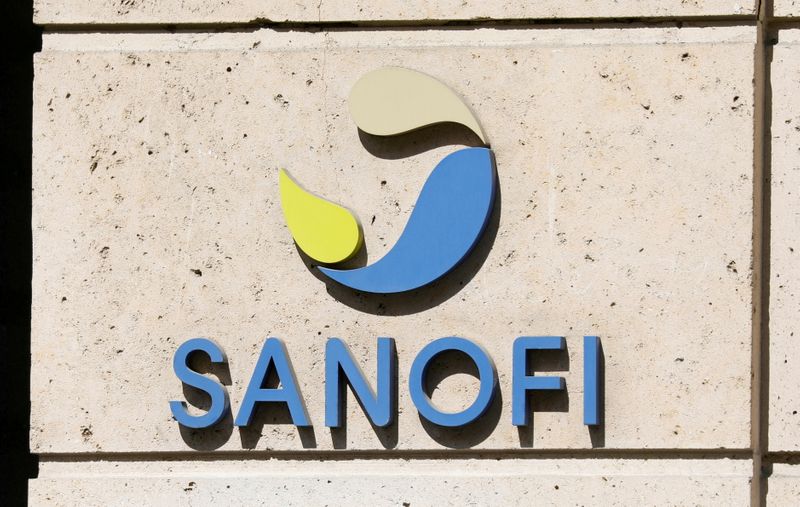PARIS (Reuters) -French healthcare company Sanofi said on Wednesday it would buy Austrian group Origimm Biotechnology, a move that will add a potential first-in-class vaccine candidate to treat acne to its pipeline.
In a separate statement, Sanofi, which has yet to put a COVID-19 vaccine on the market, said it confirmed its mid-term sales guidance of a mid-to-high single-digit growth for its vaccines business.
Sanofi said it expects the Origimm deal to close this month without divulging any financial details.
“The acquisition of Origimm further broadens our vaccines research and development pipeline, with a first vaccine candidate against acne, a high medical need for millions of teenagers and adults,” said Thomas Triomphe, executive vice president and global head of Sanofi Pasteur.
In September, Sanofi dropped its plans for its own mRNA-based COVID-19 vaccine because of the dominance achieved by BioNTech-Pfizer and Moderna in using the technology to fight the pandemic.
The group will instead focus on efforts with British partner GlaxoSmithKline to bring another COVID-19 vaccine candidate to market based on the more conventional protein-based approach, where mass trials are ongoing.
Earlier this year, Sanofi said it would buy two U.S. biotechs, Kadmon Holdings and Translate Bio for $1.9 billion and $3.2 billion, respectively.
The latter purchase has allowed Sanofi to acquire some significant know-how in the field of mRNA technology which the group is expected to use in a majority of its vaccine-candidates.
“Of the 10 new vaccine candidates planned to enter the clinic by 2025, six will use mRNA technologies to target diseases with high unmet needs and disease burden such as chlamydia and acne,” the company said.
The group, which raised it 2021 profit guidance in October, remains under pressure to revive its drug pipeline and is also eager to overcome the setback in the COVID-19 vaccine race.
Sanofi shares are up 6.6% since the start of the year, lagging a 16.3% rise in the Stoxx Europe 600 Health Care index.
(Reporting by Sudip Kar-Gupta and Benoit Van Overstraeten; editing by Rashmi Aich and Jason Neely)
























